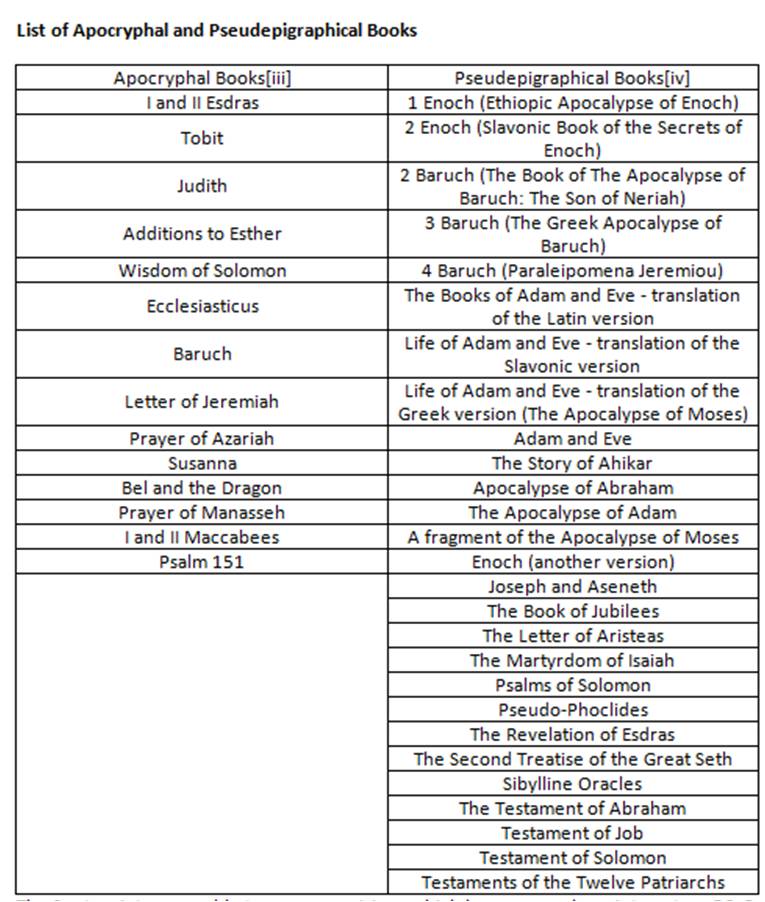Septuagint Book Of Jobrejected Scriptures

Author: Scriptural Research Institute
Publisher:
- The Second Book of Ezekiel the Prophet The Prophecies of Hadar and Melech THE VISION OF ENOCH TRANSCRIBED BY JOSEPH SMITH Septuagint Apocrypha I Septuagint Apocrypha II THE OLD GREEK BOOK OF BEL AND THE DRAGON: WHICH IS ALSO CALLED THE PROPHECY OF HABAKKUK.
- The Greek Old Testament, or Septuagint (/ ˈ s ɛ p tj u ə dʒ ɪ n t /, US also / s ɛ p ˈ tj uː ə dʒ ɪ n t /; from the Latin: septuaginta, lit. 'seventy'; often abbreviated 70; in Roman numerals, LXX), is the earliest extant Koine Greek translation of books from the Hebrew Bible, various biblical apocrypha, and deuterocanonical books. The first five books of the Hebrew Bible, known as.
- Job’s Character and Wealth. 1 There was a certain man in the land of Ausis, whose name was Job; and than man was true, blameless, righteous, and godly, abstaining from everything evil. 2 And he had seven sons and three daughters. 3 And his cattle consisted of seven thousand sheep, three thousand camels, five hundred yoke of oxen, five hundred she-asses in the pastures, and a very great.
Job’s Character and Wealth. 1 There was a certain man in the land of Ausis, whose name was Job; and than man was true, blameless, righteous, and godly, abstaining from everything evil. 2 And he had seven sons and three daughters. 3 And his cattle consisted of seven thousand sheep, three thousand camels, five hundred yoke of oxen, five hundred she-asses in the pastures, and a very great.
Scriptural Research InstituteISBN: 1989852327
Size: 27.48 MB

 Format: PDF, Kindle
Format: PDF, Kindle
View: 3083
Get Books

Septuagint Book Of Job Rejected Scriptures Written
Psalms of Solomon was once in the Codex Alexandrinus' appendix, however, that section was ripped out at some point, and only the title survives. So far only eleven copies of the Psalms of Solomon have been found in ancient Septuagint manuscripts, all dating to between the 11th and 15th centuries, however, scholars generally assume the translation found in the Peshitta was made from a copy of the Septuagint sometime between the 3rd and 5th centuries AD, and that it was in early-Christian era copies of the Septuagint, as there are several references to it found in early Christian writing. It is universally agreed that the Psalms of Solomon is a pre-Christian work, as early Christian writers referred to it even though it is clearly not about the life of Jesus as described in the gospels. The question of when it was written remains largely debatable, and currently, the consensus is that it was likely written sometime between 63 and 1 BC, and that some chapters may be older, composed in the 2nd century BC. The idea that the bulk of the Psalms were written after 63 BC, hinges on the interpretation of the dragon in chapter 2 as the Roman General Pompey, who sacked Jerusalem in 63 BC. Overall, the sack of Jerusalem by Pompey does fit the dragon story, as he did enter at the invitation of the princes, and he did occupy the city and tear down its fortifications, and then drag of many Jews as slaves, however, he was not the only one to do this. In 609 BC, Pharaoh Necho II did the same thing. The psalm describes the dragon as wanting to rule both the land and the sea, which might have also been accurate for Pompey, however, by the 1st century, BC naval battles were common, and hardly worth mentioning, especially in regards to Pompey's battles in Syria and Judea, where no ships were used. However, in Necho's time, naval warfare was new, and he was the first Egyptian king to establish a national navy, hiring Greeks to sail his ships, as Egyptians were superstitious about sailing on open waters. Regardless of when it was composed, it is likely one of the only pre-Christian Nazarene text to make it into any version of the Christian Bible, although it was ultimately dropped in the Middle Ages. It appears to have never been used by any Jewish sect, unless one counts the ancient Nazarenes as Jewish. The author of the Psalms of Solomon's intent is to place a decendent of David on the throne of Judea, foreshadowing the events on the first few decades AD surrounding John, Jesus, James, and Jude.Septuagint Book Of Job Rejected Scriptures Study
